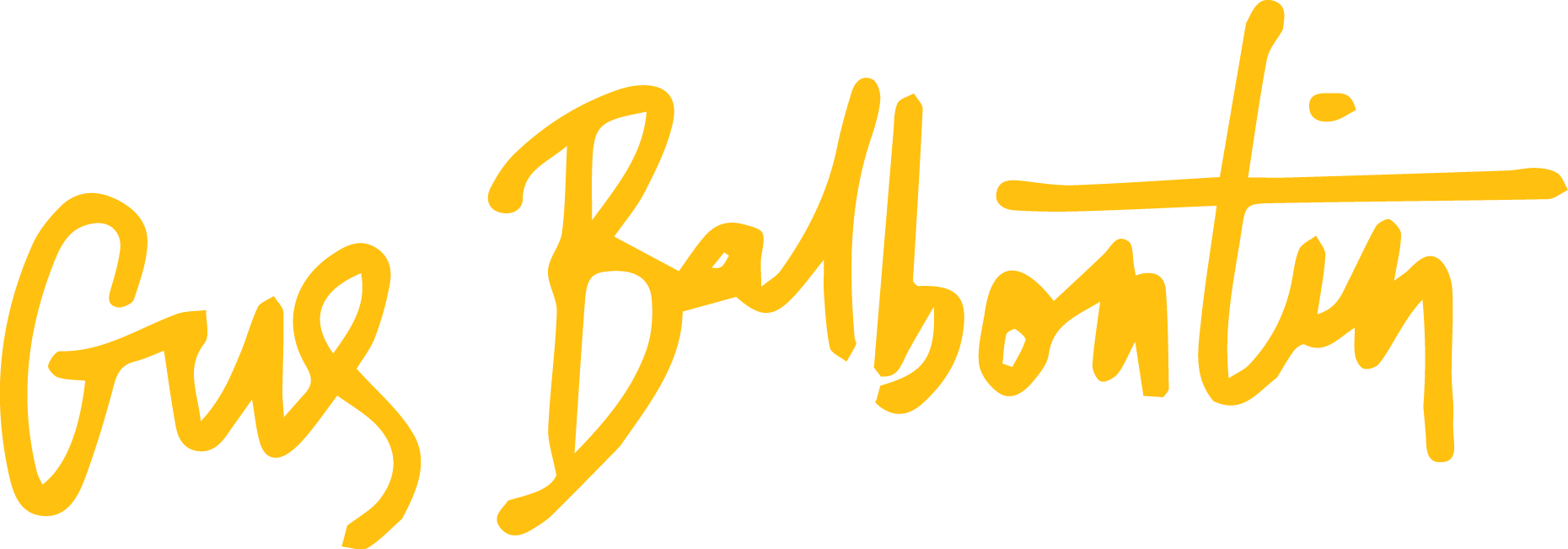"I get so many questions and requests to catch up to discuss an idea that I can't keep up. So I have put together a selection of the most common and I will keep adding! Have a read and hopefully they can point you in the right direction until we find a time to meet in person."
Gus
" Hey Gus, So I've got an idea for something and I'm not too sure where to start - what should I do?"
First up: remember that most of your ideas are shit! Wait Wait, I'm not trying to be rude, I am just being honest and asking you to be honest with yourself. Most of the ideas we ever come up with are generally rubbish. The game is ensuring you don't fall in love with them and you focus instead on the problem you were trying to fix when the idea first popped into your head. Think about that problem, think how many people share it, understand it as well as you possibly can. The next step is to scratch your head and try to come up with an idea that will let you test your solution to the problem for free or for the smallest investment possible. If you can't solve the problem in your testing, even if it's manually, pivot or pick another problem to fix. The most valuable thing you have is your time, don't waste it on shitty ideas.
Here is more thinking that may be useful!
"I've heard you speak at an event and would love you to come and help my team on our latest project or talk to my executive team or help me convince the board!"
Yes! Yes! Would love to! These days I find that engaging with businesses and teams on a regular but part-time basis or a completely ad-hoc basis is far more effective than a full time position. I am an early adopter of the future of work.
Why do I say it’s more effective? Well…the shorter non-full time nature of the engagement makes them more intense, there’s less risk of me becoming one of you and losing my curious, unpolluted view, it’s cheaper than a full time role, it allows me to work across a range of industries, businesses and puzzles, it lets me work on my own businesses and ideas which means that I can walk the talk – I’m not just advising, I am doing and sharing what I learn. (more on the future of work in my book and blog soon!).
So, if you need me to come to your team, executive event, board meeting, help you with a project, or come to your next conference just head to contacts and ping me. I have established a small bespoke consulting business with a group of rad humans who help me with these engagements. Check it here:
"Gus I agree with all the messages in your keynote but I face a significant amount of resistance in my business...what’s the trick to deal with difficult stakeholders?”
I am not going to try to sprinkle any sugar on this to make it any better…implementing change is perhaps the greatest challenge one can ever face in business. As Machiavelli once said:
“There is nothing more difficult to take in hand, more perilous to conduct, or more uncertain in its success, than to take the lead in the introduction of a new order of things. ”
So, the following examples are some of the things I’ve used in the past to try to shift thinking and implement change:
"Show me don't tell me" - I've always tried to avoid telling people what i wanted to change, instead I would do a small experiment, gather evidence and then show them what the change was about, in the process involving others and making them champions of it.
"Start small, iterate, scale" - Not all change can be implemented in small iterative ways, but do consider it, it's a hell of a lot easier!
"Lean on it" - I'm sure you have tried before to push a car and you've noticed that getting going is not easy, you have to lean on it, push, for long enough to break the inertia, once it gets going, it gets easier!



